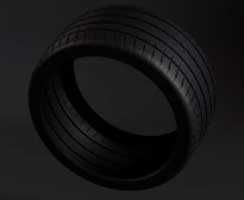 Canadian tech company Pyrowave working with French tyre firm Michelin and expanded polystyrene (EPS) packaging maker Knauf Industries have successfully produced batches of finished elastomer and plastic products incorporating 100% styrene from plastic waste recycled in Canada using Pyrowave technology. The tests performed on the resulting elastomers demonstrated quality and intrinsic properties identical to those of elastomers made from virgin fossil-sourced materials, it claims.
Canadian tech company Pyrowave working with French tyre firm Michelin and expanded polystyrene (EPS) packaging maker Knauf Industries have successfully produced batches of finished elastomer and plastic products incorporating 100% styrene from plastic waste recycled in Canada using Pyrowave technology. The tests performed on the resulting elastomers demonstrated quality and intrinsic properties identical to those of elastomers made from virgin fossil-sourced materials, it claims.
Using the 100% styrene recycled by Pyrowave, Michelin has produced a 4-tonne prototype batch of styrene-butadiene rubber (SBR) at its Bassens plant in France. The SBR produced has passed all quality tests with no difference compared with products made from styrene of fossil origin, it adds. These tests are an important milestone for further tests incorporating Pyrowave recycled styrene in tyres for laboratory and track applications to confirm the performance evaluation.
Knauf Industries can also generate EPS parts using 100% recycled styrene produced through Pyrowave technology, in this case from the collection operated by Knauf Circular in France. The resulting products passed all laboratory tests for performance and quality equivalent to products made with fossil styrene. Product safety was also validated through migration tests confirming compliance for use in food contact applications. This further demonstrates the feasibility of closed-loop polystyrene using Pyrowave technology.
In both cases, the styrene used originates from recycled sources, and the finished product (EPS or SBR) contains a 100% recycled styrene content. The recycled styrene is present in the product, therefore enabling physical traceability.
This announcement is part of the collaborative project initiated in 2020 between Pyrowave and Michelin. Styrene has a lower carbon footprint than fossil styrene produced with a reduction of around 82% less GHGs according to a recent life-cycle analysis, and allows waste plastics to be used as a raw material.
The tests performed by Michelin and Knauf Industries respectively, incorporating recycled styrene, are significant as SBR and EPS are technical polymers used in the industry. Since SBR and EPS production processes are relatively sensitive to contamination, the success of these tests demonstrates the reliability of Pyrowave technology and that the recycled styrene produced can replace fossil styrene in technical applications, thus offering sizeable opportunities with performances identical to those of a virgin polymer.
The results of these tests are a real achievement for Pyrowave, demonstrating in prototype conditions the preservation of product quality while reducing the environmental footprint.
